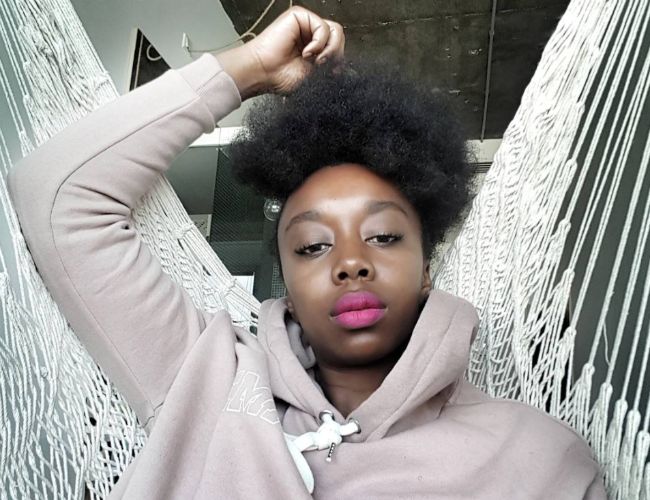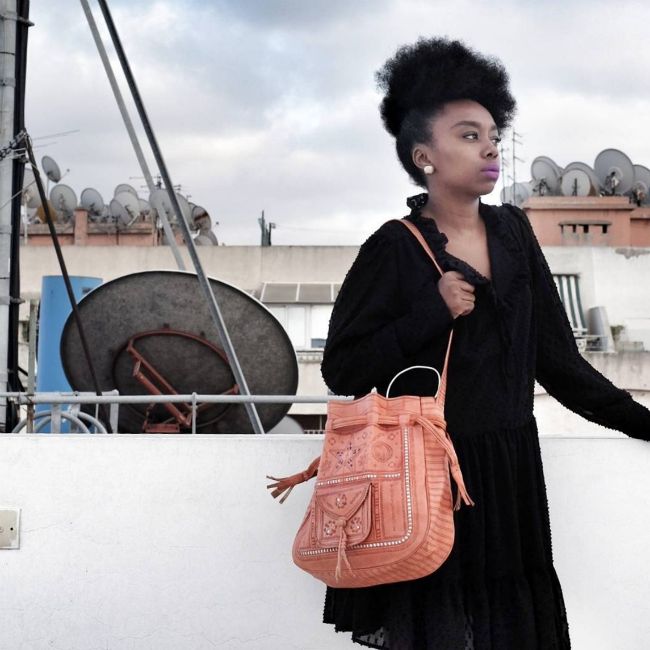When we are sharing more memes making fun of wash day instead of posting celebratory pics proudly displaying our tightly coiled, voluminous natural hair, it is officially a problem. What are these self-shaming tactics teaching our young children who watch us wallow in our hair frustrations?
The natural and curly-haired community might be bigger than ever, with social media amplifying the desire for truly diverse representation and inclusion across all industry platforms. Still, unfortunately there are many aspiring naturals may still feel a sense of exclusion when it comes to letting their real selves out for public consumption. That may be especially true for those with a type 4–specifically, type 4C–hair texture. And while there is now research to back up the truth behind having an inherent hair bias, digging up the bones to have this discussion is, in my opinion, the most necessary and appropriate to have if we as a community strive for progression.
The dangerous underlying issue that comes with having an inherent hair bias…
Although it is rarely talked about out loud, much of the stress and anxiety prevalent in millennial and gen-y age ranges likely stems from pop culture, including social and mass media imagery.
Curl envy and texture shaming go hand in hand
According to clinical psychologist Nando Pelusi, Psychology Today, “People often avoid taking risks because of the shame associated with losing social status. But our reaction to a negative social comparison is often way out of proportion with reality… You must learn to reframe the shameful event and to be concerned about it but not rate your entire being on some positional difference. You can curb the self-destructive element but keep the motivating desire.”
When there are more memes making fun of a natural-haired person’s wash day, comparing the results to a retro Samuel L. Jackson photo rather than celebrating the shrinkage, volume, and other glorious attributes that come with having tightly coiled hair, that is a problem. What are these self-shaming tactics teaching our young children who watch us wallow in our hair frustrations?
Let’s be real…
The Perception Institute’s 2016 survey polled 4,163 participants who mostly confirmed women’s explicit attitudes toward black women’s hair, hair anxiety, and experiences related to their own hair and implicit attitudes toward black women’s hair. Although we finally have solid, concrete evidence that having an inherent hair bias is an actual issue, many of us have known of its existence for many years. My question is: what do we do to shift this way of thinking? How do we encourage one another within our community to overcome personal anxieties and fears related to embracing our God-given hair texture?
My question is: what do we do to shift this way of thinking? How do we encourage one another within our community to overcome personal anxieties and fears related to embracing our God-given hair texture?
“Since launching NaturallyCurly 19 years ago, it can be easy to focus on all of the progress that’s been made,” says NaturallyCurly Co-Founder, Michelle Breyer. “Whether it’s attending a natural hair event or looking at the growing number of models who wear their hair natural, you can get the sense that everybody celebrates and embraces kinks and coils. But the 2016 study by the Perception Institute provided a sobering look at how much there is left to do to help women of color accept their hair, no matter how they choose to wear it.”
You know someone with a hair bias–now what? Are we doing enough to help those in our community overcome their curl envy, or are we contributing to it?
Be honest–we’re here to help you embrace one another’s beautiful textures. Follow us on @NaturallyCurly for all the curly, coily, and wavy hair inspiration!
Follow me on Instagram @DevriVelazquez


